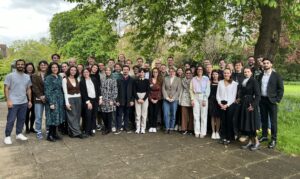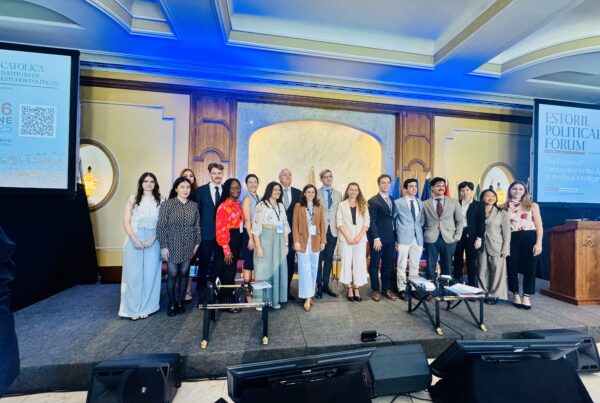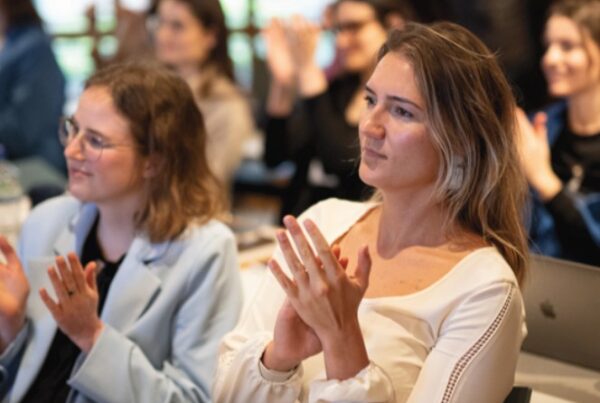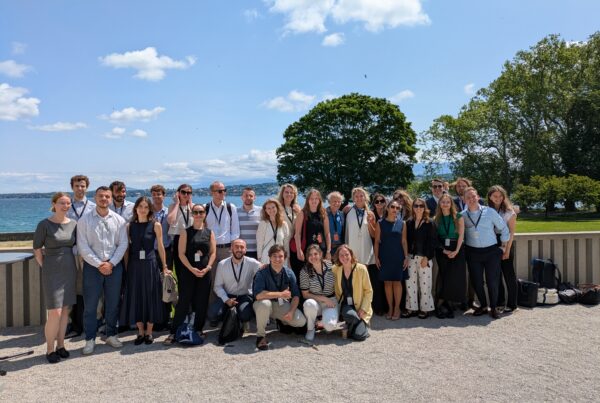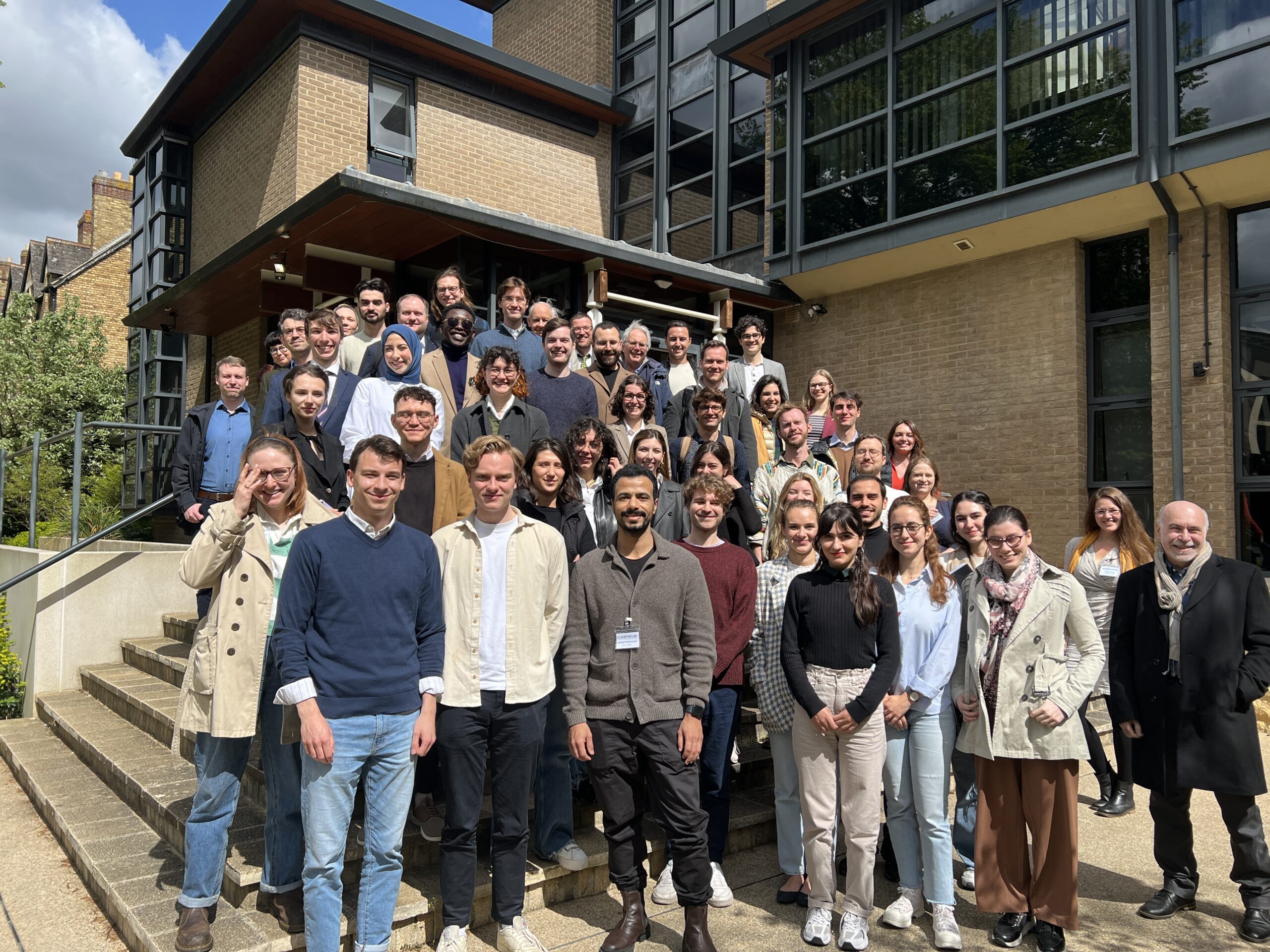
This year’s Spring School, “Making Sense of Turbulent Times” took place from 17th–19th April with a special Alumni Day on 20th April. In history, as in politics and plane travel, turbulence is generally seen negatively – a thing to be contrasted with tranquillity or a stable equilibrium – but in other contexts turbulence can be positive. In science, for instance, it is that rough flow of air which makes our plane trip possible, circulates heat and, in the end, is essential to the existence of all life of earth. Speakers explored both what turbulence might mean in the context of their disciplines and whether or not we ought to see it as a problem in the world in which we live.
The first day saw a welcome from Dr Hartmut Mayer (Executive Chair of the Europaeum), Dr Joost Augusteijn (Leiden University) and Dr Miles Pattenden (Core Programme Director of the Europaeum). This was followed by two keynote addresses, from Professor Raili Marling (University of Tartu) and Dr Nick Dickinson (Balliol College, Oxford). Professor Marling made an impassioned case for the utility of Humanities in understanding concepts such as turbulence and for the need to pay attention to the ever-shifting ranges of emotion that we experience both during crises and in everyday life. Dr Dickinson then set out a range of scenarios for political turbulence before and after key elections later in 2024 in Britain and the United States, speculating on their likelihood and on the potential impacts on Europe.
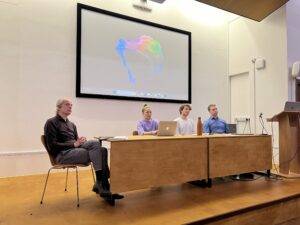
The School’s second day moved to a mixture of student presentations and further keynotes. Students from across the network presented their work on turbulence in politics and political history, in climate and energy policy, and in social media and cybersecurity policy. Professor Carl Heneghan (Kellogg College, Oxford) explained his role as a public scientist during the Covid-19 pandemic and his advocacy for an “evidence-based” approach to decision-making in public health policy and Professor Alex Vasuvedan (Christ Church, Oxford) talked about the constant turbulence and upheaval in housing policy and availability in late twentieth-century cities, presenting some of the more radical solutions that individuals and collectives developed to overcome them.
On the third day the students also heard from Professor David Priestland (St Edmund Hall, Oxford) who analysed the historical and political parallels between the 1930s and the 2020s, and from a trio of presenters in a panel on migration history. Myroslava Gongadze (Voice of America) discussed the politics of the current refugee crisis in Ukraine, Dr Dina Gusejnova (The London School of Economics), the parallels between the present and the interwar period concerning the rescue of dissidents and intellectuals from authoritarian regimes, and Dr Andrew Shield (Leiden University) the long history of queer migration during the twentieth and twenty-first centuries.
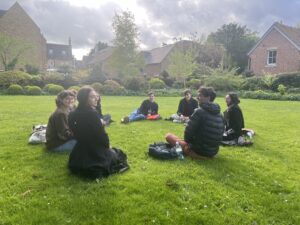
At the end of each day, students also divided into small groups to discuss what they had heard in the lectures and presentations. They were encouraged to think about how the concepts at the heart of the Spring School programme were used and applied to the discipline specific case studies and how well those case studies help us complicate and nuance the general concept.
Finally, on Saturday 20th April, the students and returning Europaeum Alumni, from the MA in European History & Civilisation in particular, listened to a keynote from History & Civilisation Alumnus (2006) Dr Jan Machielsen (Cardiff University) on “witch hunts, past and present”, and to a further panel debate in which three Europaeum alumni (Hannah Buchinger, Buddy Janssen, and Kaarina Kolle) discussed the value of their experiences as part of the Europaeum for their subsequent careers. They also reflected on how the event theme, turbulence, affects their work in European gender policy, cybersecurity, and climate advocacy.
After lunch, the delegates heard from some of this year’s cohort of MA in History & Civilisation students as well as from Professor Robert Evans (Oriel College, Oxford) and Professor Martin Conway (Balliol College, Oxford) who reminisced about the benefits of European collaboration and the pleasure of supervising programme theses over many years.
The Europaeum extends its thanks to all speakers and participants in the event, and in particular to Dr Joost Augusteijn, Dr Maxine David, Dr Andrew Shield, and Dr Nicolas Vaicbourdt, the Leiden and Paris coordinators of our joint programmes. It also extends very special thanks to St Antony’s College, Oxford and to the Maison Française de Oxford, our venues for four very enjoyable and stimulating days of academic discussion.
